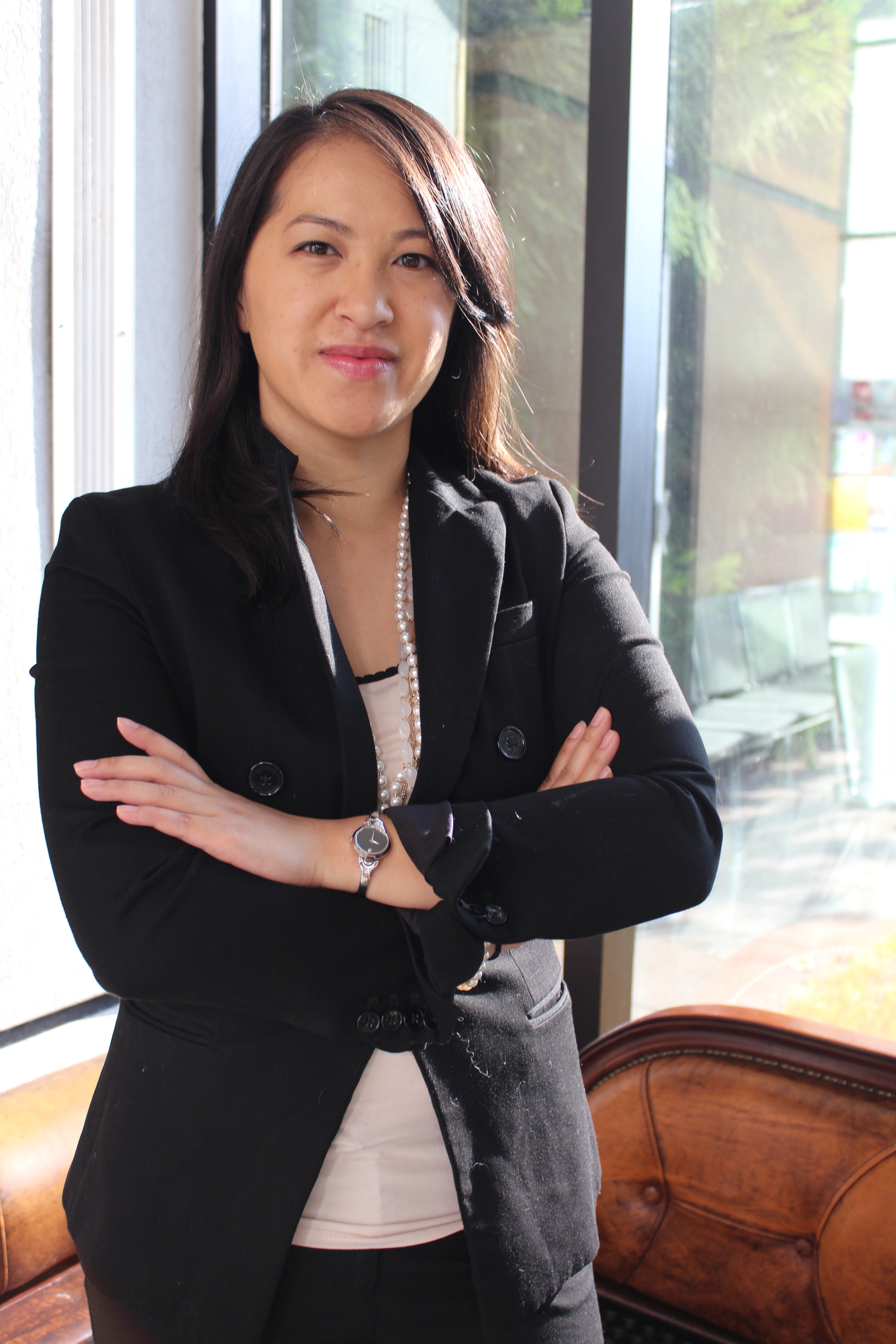
Victoria Huynh
Center for Pan Asian Community Services
As a person who works in the limited English proficient, immigrant, and refugee communities, CLAS is a matter of whether someone will gain access to essential health services or not.
Here’s a story from our community that has stuck with me, to illustrate the difference that Culturally and Linguistically Appropriate Services (CLAS) can make.
NQ was a young and vibrant student attending one of the most prestigious high school in her state. She had difficulty with settling in her school and suffered from severe depression for some time. Both her parents are limited English proficient with a lack of understanding of resources and care for mental health. NQ’s suicide attempt and her families’ introduction to the available mental health resources were overwhelming as the family struggled to understand mental health both culturally and linguistically. NQ’s family could not find a provider that could speak their language. They were nervous about the interactions with the providers and concerned that the services would not help. Due to the inability to connect with the providers and support staff, NQ’s family chose to seek support from Eastern medicine and religious leaders instead of medical and mental health professionals. NQ’s care and treatment may have been different if she was living in a state or a region that has embraced CLAS standards and committed to meeting the needs of its diverse families.
The National Culturally and Linguistically Appropriate Services standards set a framework for providers and organizations to deliver quality and appropriate care and services to their diverse patients. The intention is clear: to advance health equity, we must eliminate health care disparities in our communities. CLAS addresses barriers that may result from an organization’s governance, leadership, workforce, ability to provide language assistance, and service delivery. Providing effective, tailored, and quality care is essential to address health concerns and disparities, especially within racial and ethnic groups.
Every day, the Center for Pan Asian Community Services (CPACS) in Atlanta, GA, interacts with limited English proficient (LEP) patients at our receptionist desk. If a patient arrives to our Federally Qualified Health Center (FQHC) and communicates that they only speak Chinese, specifically Cantonese, what would happen? What would happen if we did not have a bilingual staff member at the front desk to greet someone from one of the largest Asian populations in the county that we operate in? What would happen if the agency did not have policies to ensure that providers of care are trained to acknowledge cultural influences with discussing treatment or whether it will be a man or woman providing the examination?
The implementation of CLAS services in mental health provides a number of benefits, such as that
- patients and their families may better express and share their symptoms in their native language
- there is an increased chance that the patients will be able to identify with a provider or support staff member who recognizes trauma they have experienced as an asylee or refugee from war, religious persecution, discrimination based on race, sexual identity, etc.
- care providers can address new Americans’ stresses of adapting to their new country and environment as well as concerns about social stigmas around continuing care or including other family members in treatment
- health professionals can work within the religious and cultural practices that may affect who makes decisions for mental health treatment, who can administer treatment, and whether someone will seek mental health treatment.
I am hopeful and glad to see that states are adopting CLAS training legislation and that there are State-sponsored activities. I often refer to the Think Cultural Health site for resources.
The National Partnership for Action to End Health Disparities (NPA) formed regional health equity councils across the U.S. The Southeastern Health Equity Council in Region IV has been working to incorporate CLAS standards, provide cultural competency webinars, and also operate a cultural competency committee. This formation of regional councils has supported regional efforts and assessment of how CLAS is being implemented in their respective areas.
In the state of Georgia, there have been unsuccessful legislative efforts in the past decade or so to provide or require cultural competency training for health professionals. Some funding sources may mandate that agencies have CLAS-related policies, opportunities to attend CLAS trainings, and even Limited English Proficiency plans. But even though there may be compliance on paper, implementation is often overlooked. What oversight or enforcement of CLAS policies is there at mental health agencies or health agencies? Many individuals do not know how to troubleshoot or seek remedies if they are turned away from services because their health care professional refuses to provide service or provides less care because of their language abilities.
We need to look at how we are advancing cultural competency. What trainings are available for providers working with patient populations that have LEP, or ethnic or racial identities, or communities with disabilities, etc.? Are cultural competency trainings mandatory? Are there trainings available about how to use an in person or digital interpreter, translator, or an ASL interpreter?
From where I sit, a lot of the challenges experienced in physical health are similar to what our communities experience in mental health. In the state of Georgia, there is a severe shortage of bilingual Asian American mental health professionals. As a result, at our agency, we find it difficult to refer our LEP clients to bilingual mental health providers because there are not many in our state.
There are a number of steps that will help improve CLAS availability and the ability of people to receive appropriate care from mental health and medical providers. Legislators, individuals in academia, service providers, advocates, families, and patients all have a hand in helping to improve CLAS implementation.
- Legislators can reintroduce/introduce bills that require health professionals attend CLAS trainings
- By advocating for funding incentives and loan forgiveness programs for bilingual staff and providers in needed areas, legislators and advocates will help uphold the CLAS standard in needed areas
- Caseworkers and social workers assisting with referrals and follow-up with patients can encourage patients to leave feedback of their experiences and report civil rights violations, if any
- Continuing to produce and disseminate publications and reports on how patient outcomes are affected by CLAS implementation that become great tools for CLAS advocacy.
We will have reached success in CLAS when a LEP patient walks in and there is a smooth system where
- the client can gain language access
- the providers have tools to address cultural barriers with access to, continuation of, and/or maintaining treatment, including appropriate knowledge, training, and access to in-person interpreters; in-language materials and patient engagement; and funding allocated for trainings and/or language services
- providers and support staff reflect the target communities in their service area
- we have quality care and positive health outcomes as a result of an intentional CLAS implementation strategy.
CLAS can improve patients’ quality of life and access to quality care and services. I stress the urgency for agencies, community providers, and other groups to adopt and implement CLAS services so they can serve their clients appropriately, respectfully, and effectively.
What do you think?
- What is your vision of success in implementation of CLAS standards? How have you or someone you know been affected by culturally and linguistically appropriate services – or the lack thereof?
Tell us on Facebook!
Some related posts on Care for Your Mind
- Caroline HeeJeon Gale, Learning to Live with Bipolar Disorder
- Melody Moezzi, Does Cultural Bipolarity Create Barriers to the Delivery of Quality Mental Health Care?
- Pata Suyemoto, Working to Dispel Stigma Among Asian Americans
- Noriel Lim, PhD, From a Clinician’s Seat: Why and How to Provide Culturally-Competent Care
Author Bio
Victoria Huynh is the Vice President of the Center for Pan Asian Community Services, Inc. (CPACS), the first and largest agency serving the Asian and Pacific Islander community in the U.S. South. She focuses specifically on language access and barriers to services within the limited English proficient, immigrant, and refugee communities. Huynh works within the local, regional, and national space to develop culturally competent programs, capacity building opportunities, and strategic events targeting providers and the underserved communities. Huynh has more than 10 years of experience in community education and outreach within the immigrant and refugee communities in Georgia. Since 2015, Huynh serves as a member of the Southeast Region IV Regional Health Equity Council and is the current regional Cultural Competency Committee Chair. Through her work with various grassroots communities in the metro Atlanta area, Huynh was selected as one of the 25 Most Influential Asian Americans in Georgia in 2015 and 2017. Huynh graduated from the University of Georgia with a focus on Sociology and Criminal Justice.
The Center for Pan Asian Community Services, Inc. (CPACS), a private nonprofit located
in Georgia, promotes self-sufficiency and equity for immigrants, refugees, and underprivileged people through comprehensive health and social services, capacity building, and advocacy. Founded on the belief that “people need people,” CPACS is the first, largest and oldest organization in the Southeast to focus on issues and concerns of Asian Americans, especially women, children, and families with low incomes.









Connect With Us